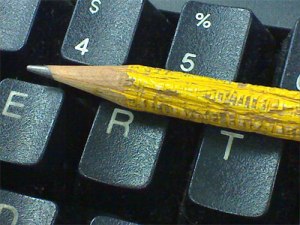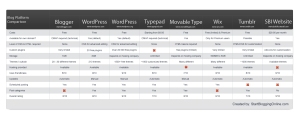
FirstOnlineJob.com
There are differences between writing online against print writing. Making the transition from a traditional print writer to a blogger could be difficult, but these tips are just some of the basics that you should know before typing your thoughts:
BE RELATABLE, BE YOURSELF. What would make a reader go to your blog instead of a newspaper article? Give your post a personality as a way of keeping your readers’ attention.
USE LINKS WITHIN YOUR POSTS. This would be a great way to give your readers other great blogs, websites or even a previous post from your site, increasing your clicks and giving your blog a better search engine ranking.
RESPOND TO BLOG COMMENTS. This is an opportunity to connect directly with your audience. You will make them feel that you appreciate their feedback.
INCLUDE IMAGES. Your readers need to be stimulated visually. Choosing the right picture could make your post more engaging and interesting for them.
CRAFT YOUR POST’S TITLE. Choosing your title can be crucial, not only to catch your readers’ attention, but also for the post to be in the top of a search engine result.
PROMOTE YOUR BLOG. It will be hard to get readers if you don’t make yourself visible. Having a Twitter, Facebook or YouTube account, as well as letting your relatives and friends know about your blog, could be crucial for its success.
WRITE IN THE ACTIVE VOICE. To be effective in online writing you have to get straight to the point, lending a sense of urgency to your writing.
KEEP IT SHORT. Only include main ideas and not sentences without a fact.
GET SOME INSPIRATION. Read other blogs; get ideas from creative writing blogs such as The Write Practice or Goins Writer.
This is the tips’ list I chose. Here are all the articles that I used:
– Best Practices for Writing For Online Readers
– How To Write a Blog People Want to Read
– The 12 Do’s and Don’ts of Writing a Blog
– How to Craft a Blog Post
– 10 Terrific Creative Writing Blogs








